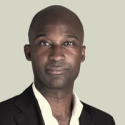The News
Firmin Edouard Matoko, one of the two candidates vying to head the UN’s culture and education agency, said he would build more museums in Africa to house artifacts returned from overseas if he secures the top job, a move he said could boost cultural tourism across the continent.
Matoko, a veteran diplomat and economist from Congo Brazzaville, is competing with Khaled El-Enany, Egypt’s former tourism minister, to be appointed UNESCO’s next director-general. The agency’s executive board — made up of 58 member states elected for four-year terms — will hold a vote on Oct. 6 to select a recommended nominee for appointment.
Matoko, a UNESCO official for 35 years who spoke to Semafor in a wide-ranging interview, welcomed the restitution in recent years of artifacts looted by former colonial powers in the wake of the Black Lives Matter movement. “The issue is not only giving back the artifacts, but it’s also setting up a museum and training the people on how to preserve those artifacts,” he said. “This is very important, otherwise the artifacts go back to the village and may be subject to illicit traffic.”
Matoko said that, under his leadership, UNESCO would support the construction of museums and training of staff. He added that he felt former colonial powers returning artifacts should, as a condition of the process, be responsible for “some follow up action” to create conditions for the preservation of items, such as providing funding to build museums.
In this article:
Know More
The construction of museums to house artifacts offers an opportunity for African countries to bolster their cultural tourism offering for international and domestic visitors, potentially reaping economic benefits. Governments could boost revenues through museum attendance as well as through money spent by visitors, from hotel accommodation to restaurants and souvenir shops. It also offers a way to create jobs.
The vast majority of African artifacts in museums are held outside Africa, with more than half a million in European institutions alone. In recent years, objects looted from Benin City by British soldiers in 1897 — commonly known as Benin Bronzes — have been returned to Nigeria, Asante artifacts have been returned to Ghana, and France has sent colonial-era skulls back to Madagascar.
But the return of items has at times proved to be problematic. The campaign for the return of the Benin Bronzes attracted investment to Edo state, in southern Nigeria, to build a cultural district in Benin City. The investment includes the building of the Edo Royal Museum, the Edo Museum of West African Arts (EMOWAA) with the EMOWAA Pavilion (research and educational facility), and Benin City Mall amongst other features. But the plans sparked a dispute with the Oba of Benin, the traditional ruler, who argued that the items were stolen from his ancestors and should be returned to his family.
Matoko, in the interview, also said UNESCO would use digital technology to extend education to more children in Africa, if he became the agency’s director-general. “With the lack of teachers that we have, if you use new technologies, you can teach from a distance for virtual education. That’s a priority,” he said, adding that the COVID-19 pandemic showed this approach can be implemented at scale.
Step Back
The person selected by UNESCO’s executive board will be recommended for appointment by the agency’s 194 member states next month. The winner will be UNESCO’s first African leader in nearly 40 years.
The View From Egypt
El-Enany, an Egyptologist who was the early frontrunner in the race to be director-general, has emphasized the role of education in bridging inequalities worldwide and vowed to reduce bureaucracy within UNESCO.
In an interview in May with The Korea Times, El-Enany said that, if elected, his first priority would be to rebuild consensus among the UN agency’s member states to reduce political polarization. “UNESCO must remain a neutral platform,” he told the outlet, adding: “Every member state should feel ownership of this organization — where impartiality, inclusion and mutual respect prevail.”
He also said UNESCO needs to diversify its funding streams by building partnerships with multilateral donors, philanthropic organizations, the private sector, and governments.
Notable
- The withdrawal of the US from UNESCO weakens the country’s ability to participate in key discussions on technology, education, heritage, and science, argue development experts Anne Campbell and Emily Markovich Morris in an article for the Brookings think tank.


